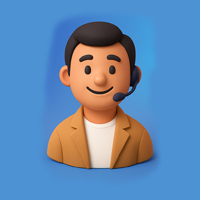
Let’s talk about a real-life disaster.
A small retail business decided to save money by using a cheap, pre-built app template. The owner thought, “Why spend thousands on custom development when this $500 template does the job?”
Six months later, the app was a mess.
- Customers complained about slow load times and crashes.
- The checkout process was so clunky that 30% of users abandoned their carts.
- Worst of all? The template couldn’t handle the business’s loyalty program, so they lost thousands in repeat sales.
The owner had to scrap the app entirely and start over—this time, with a custom mobile app development team. The lesson? Cutting corners on app development doesn’t save money—it costs you customers.
This isn’t just a cautionary tale. It’s a reality for businesses that don’t understand the real benefits of custom mobile app development—or the ROI of mobile app development services.
So, is a custom app worth the investment? Absolutely. But only if you know why it’s better—and how to make it work for your business.
Ready to build an app that actually grows your business? Contact TCU for custom mobile app development services that deliver results.
The Problem With “Good Enough” Apps
Too many businesses fall into the trap of thinking, “An app is just an app. How different can they really be?”
Very different. Here’s what happens when you settle for a generic solution:
Your App Feels Like Everyone Else’s
Generic apps use the same templates as hundreds (or thousands) of other businesses. That means:
- Your branding gets lost.
- Users can’t tell your app apart from competitors.
- You miss the chance to stand out in a crowded market.
Example: Imagine two coffee shops. One has a unique, branded app with loyalty rewards and personalized drink suggestions. The other uses a basic template that looks like every other café’s app. Which one do you think keeps customers coming back?
You’re Stuck with Limited Features
Off-the-shelf apps can’t do everything you need. Want to add a custom loyalty program? Too bad. Need real-time inventory updates? Not happening.
Real-world impact: A restaurant chain couldn’t update their menu in real-time with their template app. Customers kept ordering sold-out items, leading to bad reviews and lost sales.
Performance Suffers (And So Do Your Sales)
Generic apps aren’t optimized for speed, security, or scalability. That means:
- Slow load times (53% of users abandon an app if it takes more than 3 seconds to load).
- Crashes and glitches (which frustrate users and hurt your brand).
- No room to grow (so you’ll have to rebuild later anyway).
You Lose Control Over Your Data
With a template app, you’re at the mercy of the platform. They own the data. They control the updates. And if they decide to shut down or change their terms, your app could disappear overnight.
Example: A fitness studio used a third-party app platform that suddenly doubled their fees. They had no choice but to pay—or lose their entire customer database.
Why Custom Mobile Apps Are a Game-Changer (With Real Numbers)
Now, let’s talk about what happens when you invest in custom mobile app development.
1. Your App Fits Your Business Like a Glove
A custom app is built for your exact needs, not a generic audience. That means:
- Features tailored to your customers (e.g., a salon app with real-time stylist availability).
- Workflows that match your operations (e.g., a restaurant app with kitchen display integration).
- A design that reflects your brand (not a cookie-cutter template).
Example: Domino’s Pizza built a custom app that lets users track their order in real-time, leading to a 28% increase in digital sales.
2. Faster Performance = Happier Users
Custom apps are optimized for speed and reliability, which means:
- No lag when users browse or checkout.
- Fewer crashes (so customers don’t abandon your app).
- Better retention (users stick around when the app works smoothly).
Stat: Apps with fast load times see 2x higher user retention (Google).
3. You Own Your App (And Your Data)
With a custom app, you’re in control. No third-party platform can:
- Shut you down unexpectedly.
- Raise fees without warning.
- Limit your features based on their template.
Example: Starbucks’ custom app handles 23% of all U.S. sales—because they own the experience and the data.
4. Scalability: Grow Without Starting Over
A custom app grows with your business. Need to add:
- New features? No problem.
- More users? The app can handle it.
- Third-party integrations? Easy.
Example: Airbnb started with a simple app but scaled to millions of users without a complete rebuild—because they invested in custom development early.
5. Security That Protects Your Business
Generic apps are easier to hack. Custom apps include:
- Data encryption (so customer info stays safe).
- Secure authentication (to prevent fraud).
- Regular updates (to patch vulnerabilities).
Stat: 60% of small businesses fold within 6 months of a cyberattack (National Cyber Security Alliance). A secure app isn’t optional—it’s survival.
The ROI of Mobile App Development Services: What’s the Real Payoff?
Let’s talk numbers. Because at the end of the day, businesses care about one thing: Is this worth the money?
The answer? Yes—but only if you measure the right things.
Increased Revenue (The Obvious Win)
A well-designed custom app boosts sales by:
- Making it easier to buy (one-click checkout, saved payment info).
- Upselling with personalized recommendations (e.g., “Customers who bought X also bought Y”).
- Reducing cart abandonment with a smooth checkout process.
Example: Amazon’s app drives 35% of their total sales—because it’s fast, personal, and easy to use.
Lower Costs in the Long Run
Yes, custom apps cost more upfront. But they save money by:
- Avoiding rebuilds (since the app scales with your business).
- Reducing customer service costs (fewer complaints about bugs or crashes).
- Cutting third-party fees (no middleman taking a cut of your sales).
Stat: Businesses that invest in custom apps save 20–30% in long-term costs compared to template-based solutions.
Higher Customer Loyalty (The Hidden Goldmine)
A great app keeps customers coming back. How?
- Loyalty programs (e.g., points, discounts, exclusive offers).
- Personalized experiences (e.g., “We recommend this based on your past orders”).
- Push notifications (to re-engage users who haven’t opened the app in a while).
Example: Sephora’s app increased customer retention by 25% with personalized beauty recommendations.
Competitive Advantage (The Thing Your Rivals Can’t Copy)
In a world where everyone has an app, yours needs to stand out. A custom app lets you:
- Offer unique features competitors can’t replicate.
- Build a stronger brand with a cohesive design.
- Adapt faster to market changes (e.g., adding curbside pickup during COVID).
Example: Nike’s custom app increased direct sales by 30% by offering exclusive sneaker drops and personalized training plans.
Data That Drives Smarter Decisions
Custom apps give you detailed analytics on:
- User behavior (what features they use most).
- Sales trends (what’s selling and what’s not).
- Engagement metrics (how long users stay in the app).
Example: Walmart’s app uses data to personalize deals, leading to a 20% increase in app sales.
How to Maximize the Benefits of Custom Mobile App Development
Investing in a custom app is just the first step. To truly see the ROI of mobile app development services, you need a strategy.
1. Start with Clear Goals
Before development begins, ask:
- What problem does this app solve? (e.g., “We need to reduce cart abandonment.")
- Who is the target audience? (e.g., “Millennial shoppers who love sustainability.")
- How will we measure success? (e.g., “20% increase in mobile sales.")
2. Prioritize User Experience (UX)
A great app isn’t just functional—it’s intuitive and enjoyable. Focus on:
- Fast load times (users won’t wait).
- Simple navigation (no confusing menus).
- Personalized content (show users what they care about).
Example: Duolingo’s app retains 30% of users after 1 year because it’s fun, easy, and personalized.
3. Plan for Long-Term Maintenance
Apps aren’t “set it and forget it.” Budget for:
- Bug fixes (because nothing’s perfect).
- Updates (to keep up with OS changes).
- New features (to keep users engaged).
4. Market Your App Like a Product
Even the best app fails if no one knows about it. Use:
- App Store Optimization (ASO) (so people can find it).
- Social media campaigns (to build hype).
- Influencer partnerships (to reach new audiences).
Example: Headspace used ASO and influencer marketing to become the #1 meditation app.
5. Track the Right Metrics
Don’t just count downloads. Measure:
- Retention rate: Are users coming back?
- Average session length: Are they engaged?
- Conversion rate: Are they buying?
- Customer lifetime value: Are they spending more over time?
Example: Starbucks tracks mobile order frequency to optimize their app’s rewards program.
Common Myths About Custom Mobile Apps (Debunked)
Despite the clear benefits of custom mobile app development, some businesses still hesitate. Let’s bust the myths:
Myth 1: “Custom Apps Are Too Expensive”
Reality: While the upfront cost is higher, the ROI of mobile app development services makes it worth it. Think of it like buying a high-quality tool—it costs more now but saves you money (and headaches) later.
Myth 2: “Templates Are Just as Good”
Reality: Templates are one-size-fits-none. They limit features, hurt UX, and don’t scale. Custom apps are built for your needs—not someone else’s.
Myth 3: “We Don’t Need an App—Our Website Is Fine”
Reality: 88% of mobile time is spent in apps (eMarketer). If you’re not there, you’re missing out on engagement, sales, and loyalty.
Myth 4: “App Development Takes Too Long”
Reality: With the right team, a custom app can launch in 3–6 months. The payoff lasts for years.
Myth 5: “All Apps Are the Same”
Reality: A well-designed custom app can double your mobile sales (like Domino’s did). A generic one? It’ll blend into the noise.
The Bottom Line
A Custom App Isn’t an Expense—It’s an Investment
Here’s the truth: A generic app might save you money today, but it will cost you customers tomorrow.
A custom mobile app development partner doesn’t just build an app—they build a tool that drives sales, builds loyalty, and future-proofs your business.
The ROI of mobile app development services isn’t just about the money you make—it’s about the customers you keep, the brand you build, and the competitive edge you gain.
So, if you’re serious about growing your business, a custom app isn’t optional, it’s essential.

